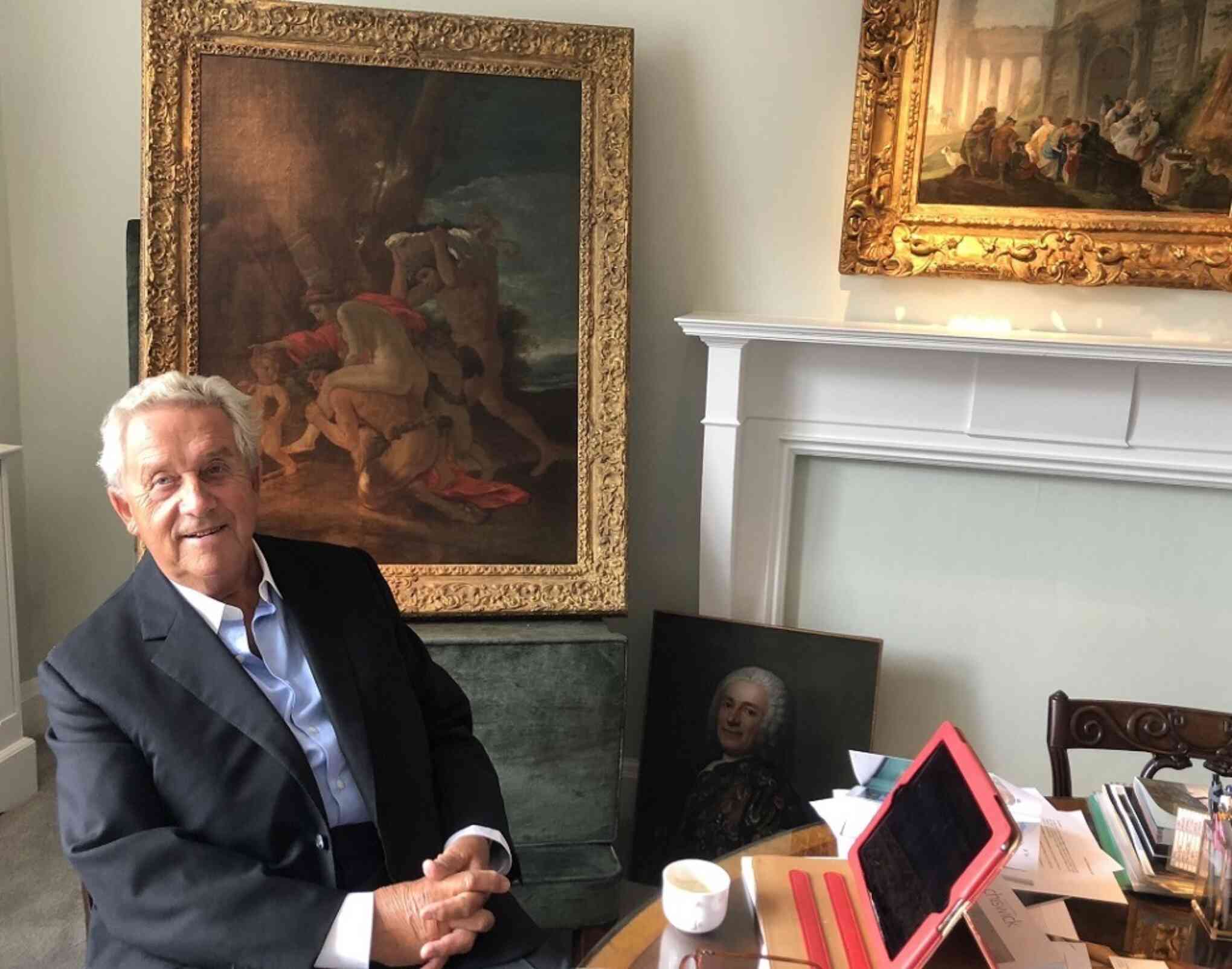Banking for businesses as unpredictable as the salmon in the Tay
It all started on the banks of the River Tay – fishing for salmon and struggling to land a catch. That’s where Derek Johns first met Ray Entwistle, the founder of Hampden & Co. “The river was in spate, the water was brown and I’m not that patient,” says Derek. “I was thinking of throwing a stick of dynamite in – and that’s when the most incredible piece of luck happened.
“I’d had enough of the fishing so I drove into Perth and saw a sign for an auction in a church. I was rummaging around when I saw this old panel catalogued as a Russian icon. I paid £200 for it at the auction,” he said. “I couldn’t believe it, it’s now in the Louvre and it is by Pietro Lorenzetti, 1300.
The story is a spectacular illustration of the life of a professional art dealer. It’s an unpredictable career, there’s an element of chance, and while the rewards can be significant, there can also be very difficult periods when sales aren’t made and cashflow dries up.
"I Don't sell shoes"
It’s a business model that mainstream banks often don’t particularly understand – or want to understand. But I’m in the happy position of having banked many clients in the art and antiques sectors. I get to know them, their families and their businesses very well. Derek has been banking with me personally for 30 years, and explains why:
“Hampden & Co is family-orientated and understands business,” says Derek. “It’s so rare to have that relationship with a bank these days. I can speak to Jeremy openly and he understands me. I realise my business isn’t normal; it isn’t selling shoes. It’s complex; it can be good, then quiet, then be good again. I’m very lucky. Art dealer friends of mine have to speak to someone in a bank call centre who knows nothing about them, which they find intensely frustrating.
The art world runs in Derek’s blood. Both his father and his grandfather were dealers. When he began to make his way in the world, he originally wanted to be a botanist, but he decided to join Sotheby’s and he quickly discovered a love for the profession.
Made a director at the age of just 27, he decided to leave in 1982 to open his own business. He established Harari & Johns with his close friend Philip Harari and set up shop in Bond Street. They put in £30,000 each and his family’s bankers, put in a further £60,000. But buying Old Masters isn’t cheap and when Derek needed £500,000 to buy a painting he was confident he could sell for a significant profit, he was disappointed to be turned down for the money by his bankers.
Instead he turned to a friend of his father’s. “He sent me the money and we sold the painting,” he said. “We doubled our money. Effectively, we had tested the water with our private bank and found they weren’t the bank for us.”
It was then that he looked for a bank that understood the art world and turned to Hill Samuel Bank, – and that’s where I had the pleasure of getting to know Derek.
But if these triumphs make dealing in art sound like an easy way of making money, the reality is very different. There are challenging times too, and that’s when a good banking relationship is even more important.
“The recession had a big effect on my business,” says Derek, who was by then trading as Derek Johns Ltd. “For four or five years, it was horrible. And it’s difficult now too because we’ve been swamped by contemporary art, which I swore would never last but seems to be stronger than ever. All the private collectors I used to advise are my age, but their children want to buy contemporary art. Also, museums frequently take months to make their mind up, and payment can be very slow. I sold something last autumn and was paid for it in April.”
Derek is gently winding his business down now, which we will help him with, while continuing to support him with his personal banking. And I’ll continue to help other customers at different stages in their business journey.
Many of the small businesses we look after at Hampden & Co aren’t selling widgets with the same volume of sales each month. A lot of them have quite lumpy income, and in the case of clients like Derek, they can have assets which are highly valuable, but which do not necessarily turnover swiftly or regularly. So having a bank that understands an individual’s financial circumstances in the round, including those of their family, can be greatly appreciated – particularly when looking to borrow money.
With clients running family businesses, there can be additional complexities, for example if the spouse or partner is a shareholder or a director. Time and time again, it comes back to the same thing – the importance of having a really good understanding of the client, and knowing why they prefer auctions to salmon fishing."

